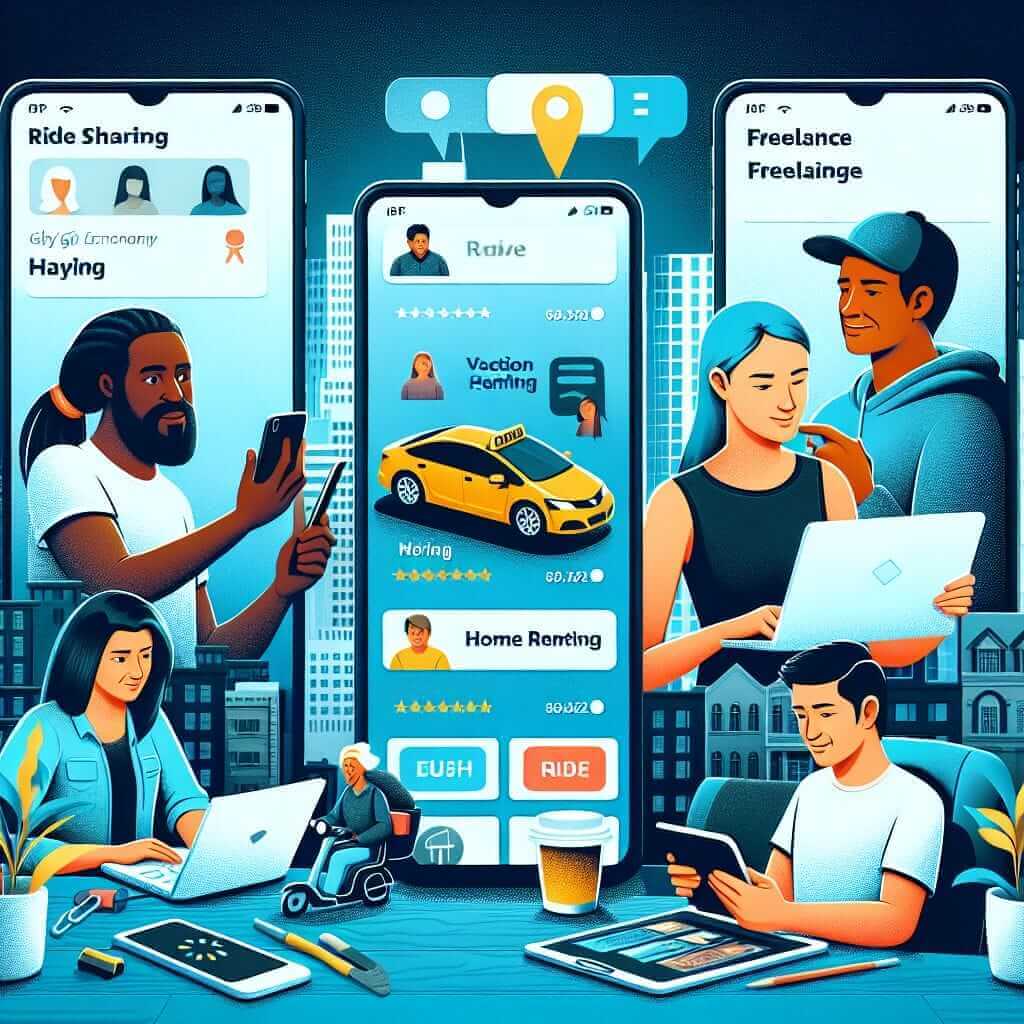In the IELTS Reading test, candidates often encounter passages on contemporary issues, including technology and economic changes. With the increasing prevalence of the gig economy, it is a topic that is likely to appear more frequently in the future. Understanding how technology is transforming the gig economy is crucial, not only for improving your reading skills but also for staying informed about current affairs.
This article aims to help you prepare for the IELTS Reading test by providing a sample reading passage on “How is technology transforming the gig economy?” along with questions and detailed explanations.
Sample Reading Passage: Hard Text
Technology and the Gig Economy
In recent years, the gig economy has gained significant traction, largely due to technological advancements. The gig economy refers to a labor market characterized by short-term contracts or freelance work, as opposed to permanent jobs. Platforms like Uber, Airbnb, and Upwork have revolutionized the job market by providing a digital arena where freelancers and clients can connect effortlessly.

Modern technology has facilitated this transformation in several ways. Firstly, mobile applications and online platforms have made it easier for gig workers to find opportunities, manage their work, and receive payments. Secondly, advancements in communication tools, such as video conferencing and instant messaging, have bridged the gap between clients and freelancers, enabling seamless collaboration regardless of geographical boundaries. Additionally, artificial intelligence (AI) and machine learning algorithms are now being used to better match freelancers with clients based on skills, experience, and preferences.
However, this technological shift also brings challenges. Many gig workers face job insecurity, as their income is often inconsistent and dependent on fluctuating demand. Furthermore, the lack of traditional employment benefits, such as health insurance and retirement plans, presents significant concerns for long-term financial stability. Additionally, the advent of technology raises questions about data privacy and the ethical use of personal information.
Nevertheless, technology continues to shape the gig economy in numerous unprecedented ways. Blockchain technology, for instance, promises to introduce more transparency and security through decentralized ledgers, which could prevent fraud and simplify payment processes. Automation tools are also being developed to help gig workers streamline their tasks, enhancing productivity and efficiency.
In conclusion, technology has undeniably transformed the gig economy, offering both opportunities and challenges. As this dynamic labor market continues to evolve, it will be essential to address the issues arising from this transformation to ensure a fair and sustainable future for gig workers.
Questions
Multiple Choice
- What is one way technology has facilitated the gig economy?
- A. By enforcing job security
- B. By eliminating short-term contracts
- C. By providing digital platforms for job matching
- D. By guaranteeing consistent income
True/False/Not Given
- The text states that gig workers always receive traditional employment benefits.
- True
- False
- Not Given
Matching Information
-
Match the types of technology with their respective advantages:
- Mobile applications
- Communication tools
- AI and machine learning algorithms
a. Matching freelancers with clients
b. Bridging geographical gaps
c. Finding and managing work
Sentence Completion
- Blockchain technology can introduce __ and __ through decentralized ledgers.
Short-answer Questions
- What type of tools are being developed to help gig workers enhance productivity and efficiency?
Answer Key and Explanations
Multiple Choice
- C
- Explanation: The correct answer is C, as the text mentions that platforms like Uber and Upwork have revolutionized the job market by providing a digital arena for job matching.
True/False/Not Given
- False
- Explanation: The correct answer is False because the text states that gig workers often face job insecurity and lack traditional employment benefits such as health insurance and retirement plans.
Matching Information
-
- Mobile applications: c
- Communication tools: b
- AI and machine learning algorithms: a
- Explanation: Mobile applications help in finding and managing work; communication tools bridge geographical gaps; AI and machine learning algorithms match freelancers with clients.
Sentence Completion
- transparency; security
- Explanation: The text states that blockchain technology promises to introduce “more transparency and security through decentralized ledgers.”
Short-answer Questions
- Automation tools
- Explanation: The passage mentions that automation tools are being developed to help gig workers streamline their tasks and enhance productivity and efficiency.
Common Mistakes
When tackling IELTS Reading sections, especially on topics like technology and the gig economy, candidates often face the following issues:
- Misinterpreting the context, especially in True/False/Not Given questions.
- Overlooking specific details which are crucial for Matching Information tasks.
- Struggling with complex sentence structures in harder texts.
Vocabulary Enhancement
Here are some challenging words from the passage:
- Traction (noun) /ˈtrækʃən/: the act of drawing or pulling something over a surface.
- Facilitate (verb) /fəˈsɪlɪteɪt/: to make an action or process easier.
- Consistent (adjective) /kənˈsɪstənt/: acting or done in the same way over time, especially so as to be fair or accurate.
- Decentralized (adjective) /diːˈsentrəlaɪzd/: controlled or operated without a single central authority.
Grammar Focus
Pay attention to the following grammar points:
- Passive Voice: Technology has been used to match freelancers with clients.
- Conditional Sentences: If technology continues to evolve, it will shape the gig economy further.
Tips for Achieving High Scores in Reading
To excel in the IELTS Reading exam, consider the following strategies:
- Practice Regularly: Familiarize yourself with different types of reading passages and questions.
- Skim and Scan: Learn to quickly locate key information.
- Time Management: Allocate your time wisely to avoid missing out on questions.
- Expand Vocabulary: Regularly learn new words and their usage.
- Review Mistakes: Understand why your answers were incorrect to avoid repeating the same mistakes.
By following these tips and engaging with high-quality reading materials, you can significantly improve your reading skills and perform better in your IELTS exam.